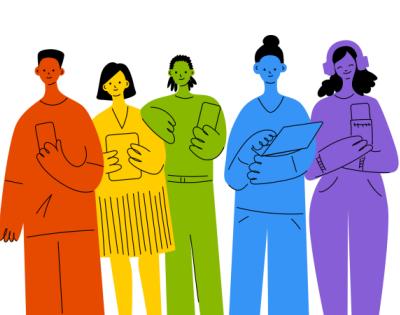This Mental Health Month, The Village is inviting you to “Retrain Your Brain.” Our thoughts shape how we feel, act, and relate to others, but sometimes, the way we think holds us back. These four common unhelpful mindsets can lead to stress, low self-esteem, and disconnection. The good news [...]
The Village Blog
Image

Shifting Unhelpful Mindsets for Better Mental Health
April is Autism Awareness Month, a time for recognizing and understanding the experiences of autistic individuals. Many autistic people have heightened or different sensory needs, meaning they may be over-sensitive or under-sensitive to certain stimuli. However, sensory needs aren’t exclusive to [...]
Generosity in Action
Giving Hearts Day is here once again, and we are grateful for the incredible support of our communities in the seven locations and surrounding areas we serve! Thanks to your generosity last year, we made many meaningful strides in enhancing our services, supporting our staff, and enriching the lives [...]
By Danielle Klapper Danielle Klapper, MS, LPCC, ATR-BC, is an art therapist with a master's degree in Creative Arts Therapy from Nazareth College in Rochester, New York. With clinical experience spanning residential placements for adolescents, outpatient community clinics, and crisis intervention [...]
By Taylor Anderson - MS, LAPC Taylor is an Outpatient and In-Home Family Therapist based in the Bismarck office, who is passionate about helping individuals with disabilities and those profoundly impacted by trauma. With a strong focus on meeting clients where they are in their unique journeys [...]
By Marshall Tutt, MS, LPC Marshall Tutt is a counselor in Moorhead, offering in-person and online therapy for adults, adolescents, and couples. With a Master’s degree in Counseling from MSUM, he focuses on Adlerian Therapy to recognize the unique strengths of each person. Marshall blends this [...]
Mental Health Challenges and Support Strategies
By Marshall Tutt Chronic Health Conditions The Center for Disease Control (CDC) and Prevention defines chronic illness as “conditions that last 1 year or more and require ongoing medical attention or limit activities of daily living or both.” Common examples include heart disease, cancer, diabetes [...]
Celebrating Diversity and Promoting Inclusion
By Taylor Anderson Individuals with Disabilities Individuals with disabilities form the largest minority group in the United States. Approximately 25% of Americans have a disability, encompassing a diverse range of abilities, ages, races, sexualities, ethnicities, religions, and socio-economic [...]
Addressing LGBTQ+ Mental Health Needs
By Rachelle Haga, MSW, LMSW Namaste! :-) My name is Rachelle and I'm an outpatient and in-home therapist with the Village's Grand Forks office. The Midwest has always been my home and I attended The University of North Dakota for both my undergraduate and graduate degrees in Social Work. I became a [...]








